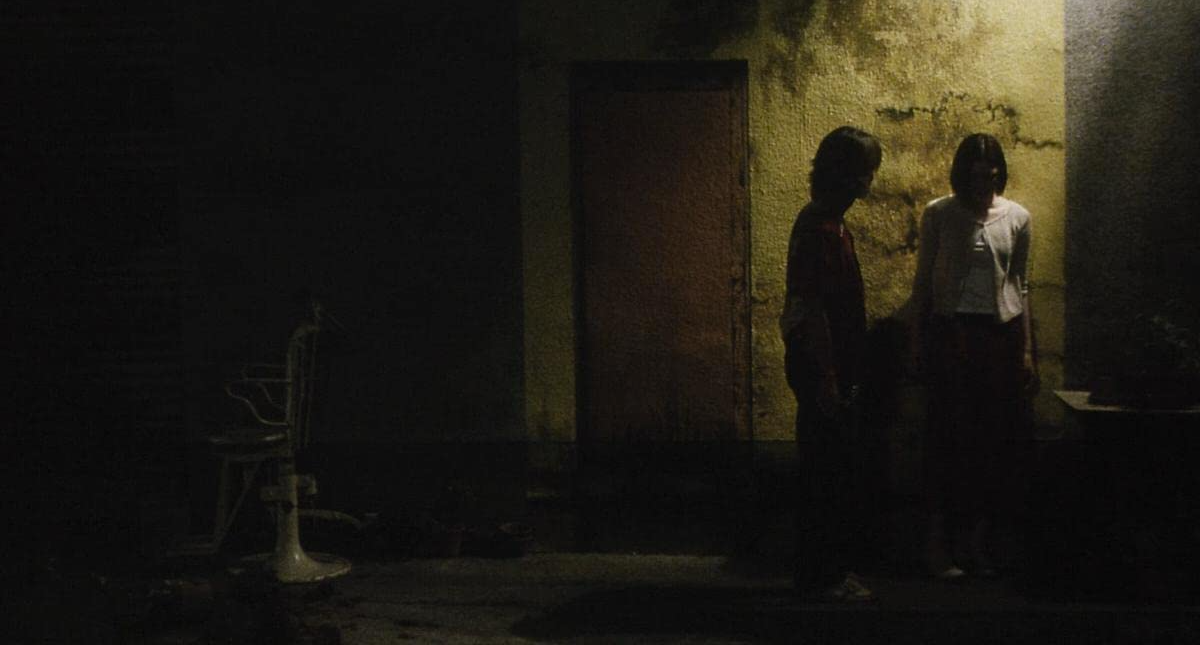Pulse (2001): Isolation and Powerlessness
It becomes unavoidable to project current circumstances and emotions onto the films we watch. I saw Pulse (2001) for the first time; I was going through all the J-Horror films that I had missed out on from decades prior. I remember how different it felt, not just from some of the other J-Horror films I had seen, but also from other ghost movies. The first major ghost does nothing more than walk up towards the camera, yet a stumble in slow motion was more terrifying than anything else I could recall. The ghosts that have entered the human world feel much more physical and their victims become more like disappearing phantoms. Once someone has been “bewitched” (an explanation or name for what exactly happens is never given) by a ghost, they become cold and distant until their death, where they disappear into ashes, leaving behind only a stain. When discussing ghosts and death, Harue remarks that “Ghosts won’t kill people. Because that will only create more ghosts... Instead they’ll make people immortal by quietly trapping them in their own loneliness”.
It’s no wonder that since the pandemic began, images from Pulse lingered in my head. The ghosts in Pulse were suspected to have entered the world from their overflowing one in a scene of a room with destroyed electrical tape and wiring—the ghosts from the machine. Those that are seemingly most affected are those most connected to the internet. Harue, who works in the Computer department at a Tokyo University, remarks after asking if Ryosuke went on the internet to connect with people that, “People don’t really connect, you know… We all live totally separately”. Isolation is pervasive through the video screens of solitary people on their computers, isolated in their houses, and the stunningly empty buses of Tokyo. While there have been so many digital options for connection during the pandemic, what they lack compared to just talking face to face cannot be ignored. As a fairly introverted person, I have never felt such a craving to spend time with people. The people, after encountering ghosts too, suffer a deep loneliness and self-isolation. While some simply disappear into ash, most of the living kill themselves first.
Haruhiko Katô and Koyuki
The scenes are filmed with equal horror as the ones with the ghosts. In fact, in a reversal of expectations, the camera turns away from the ghost scenes early, but is unflinching on the suicides. While the ghosts are frightening, we place most of the fear on what is going on inside of the living. Harue describes a history of suicidal ideation because of loneliness, which became stuck on the realization that “you might be all alone after death, too”. Pulse gives us this as the characters do not become ghosts and intermingle, but disappear, leaving nothing but a stain. An isolation in life that pervades through death is the true terror and being in a state of isolation with no predetermined end makes this terror much harder to shake off.
While Harue succumbs to the ghosts, Michi is someone who tries her best to save everyone. The story begins and ends with her on a boat, headed to South America in hopes of escaping what has taken everyone around her. Over the course of a few days in the film, regular news has shifted into the names of those that have gone missing across Japan. The only guidance she is ever given is to not enter doors that have been taped in red—there is no antidote, no final villain to conquer, and no help from a greater power. The characters are powerless as their world becomes more bleak and apocalyptic. The final moments give no pleasant catharsis, but rather turn the knife deeper.
Haruhiko Katô and Koyuki
Pulse is not an uplifting movie. It is both the best and worst film to watch at the moment. I believe there are times where confronting and sitting with our negative feelings is the right option and there are times to focus on something else. When I wanted a film to sit down and think about how this pandemic has made me feel, Pulse came to mind first.

